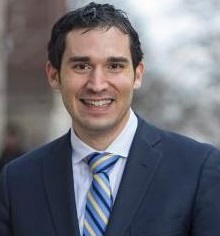 Robert E. Litan Robert Litan is a Non-Resident Senior Fellow at the Brookings Institution, where he has previously been a Senior Fellow on staff, and Vice President and Director of Economic Studies. His current research focuses on federal regulation, entrepreneurship, and a broad range of economic policy subjects.
Robert E. Litan Robert Litan is a Non-Resident Senior Fellow at the Brookings Institution, where he has previously been a Senior Fellow on staff, and Vice President and Director of Economic Studies. His current research focuses on federal regulation, entrepreneurship, and a broad range of economic policy subjects.
Litan is also a practicing attorney, as a partner with the law firm of Korein, Tillery, based in St. Louis and Chicago. He previously was a partner, Of counsel and associate with two Washington, D.C. law firms, and served during the first term of the Clinton Administration as Principal Deputy Assistant Attorney General in the Antitrust Division of the Justice Department, where he oversaw civil non-merger litigation and the Department’s positions on regulatory matters, primarily in telecommunications. Continue reading “Economist: Robert E. Litan”

 James J. Angel specializes in the market structure and regulation of global financial markets. He teaches undergraduate, MBA, and executive courses, including Investments and Capital Markets at Georgetown University. ”Dr. Jim” has testified before Congress about issues relating to the design of financial markets. Dr. Jim began his professional career as a rate engineer at Pacific Gas and Electric. Along the way he has also worked at BARRA (later part of Morgan Stanley). He has also served as a Visiting Academic Fellow in residence at the National Association of Securities Dealers (NASD – now FINRA) and also as a visiting economist at the Shanghai Stock Exchange. He has also been chairman of the Nasdaq Economic Advisory Board, a member of the OTC Bulletin Board Advisory Committee, and has served on the board of directors of the Direct Edge Stock Exchanges (later part of BATS Global Markets). He graduated from the
James J. Angel specializes in the market structure and regulation of global financial markets. He teaches undergraduate, MBA, and executive courses, including Investments and Capital Markets at Georgetown University. ”Dr. Jim” has testified before Congress about issues relating to the design of financial markets. Dr. Jim began his professional career as a rate engineer at Pacific Gas and Electric. Along the way he has also worked at BARRA (later part of Morgan Stanley). He has also served as a Visiting Academic Fellow in residence at the National Association of Securities Dealers (NASD – now FINRA) and also as a visiting economist at the Shanghai Stock Exchange. He has also been chairman of the Nasdaq Economic Advisory Board, a member of the OTC Bulletin Board Advisory Committee, and has served on the board of directors of the Direct Edge Stock Exchanges (later part of BATS Global Markets). He graduated from the  Joshua Mitts, Ph.D is an Associate Professor of Law at Columbia Law School. Joshua Mitts, who joined the faculty in 2017, uses advanced data science for his research on corporate and securities law. His primary focus is on information disclosure in capital markets, consumer financial protection, and related topics in law and finance. Mitts employs empirical methods, including statistical analysis and machine learning, for his research on short-selling, informed trading on cybersecurity breaches, information leakage and hedge-fund activism, insider trading on corporate disclosure, and information transmission in financial markets.
Joshua Mitts, Ph.D is an Associate Professor of Law at Columbia Law School. Joshua Mitts, who joined the faculty in 2017, uses advanced data science for his research on corporate and securities law. His primary focus is on information disclosure in capital markets, consumer financial protection, and related topics in law and finance. Mitts employs empirical methods, including statistical analysis and machine learning, for his research on short-selling, informed trading on cybersecurity breaches, information leakage and hedge-fund activism, insider trading on corporate disclosure, and information transmission in financial markets. Peter J. Chepucavage has 40 years of experience in both the public and private sectors of the securities industry. He has worked for the National Association of Securities Dealers (NASD) and U.S. Securities and Exchange Commission (SEC), as well as a private law firm and a major international investment bank. He is familiar with all aspects of broker-dealer and hedge fund regulation, including broker dealer operations and stock loans.
Peter J. Chepucavage has 40 years of experience in both the public and private sectors of the securities industry. He has worked for the National Association of Securities Dealers (NASD) and U.S. Securities and Exchange Commission (SEC), as well as a private law firm and a major international investment bank. He is familiar with all aspects of broker-dealer and hedge fund regulation, including broker dealer operations and stock loans.  Robert J. Shapiro (born 1953) is the cofounder and chairman of Sonecon, LLC, a United States private consultancy for economic and security-related issues that has built a reputation on a range of policy matters, including climate change, intellectual property, securities fraud, healthcare reform, demographics, the resilience of the electric grid to cyberattacks, and blockchain technologies.
Robert J. Shapiro (born 1953) is the cofounder and chairman of Sonecon, LLC, a United States private consultancy for economic and security-related issues that has built a reputation on a range of policy matters, including climate change, intellectual property, securities fraud, healthcare reform, demographics, the resilience of the electric grid to cyberattacks, and blockchain technologies. Joshua Mitts writes and teaches on securities law and financial contracting. His recent projects study
Joshua Mitts writes and teaches on securities law and financial contracting. His recent projects study  Alexis Brown Stoke, Associate Professor of Finance & Economics at Texas State University, earned her Bachelor of Arts in Economics, Political Science, and Managerial Studies, cum laude, from Rice University, and her Juris Doctorate from Harvard Law School, where she served as president and editor-in-chief of the Harvard Journal on Legislation.
Alexis Brown Stoke, Associate Professor of Finance & Economics at Texas State University, earned her Bachelor of Arts in Economics, Political Science, and Managerial Studies, cum laude, from Rice University, and her Juris Doctorate from Harvard Law School, where she served as president and editor-in-chief of the Harvard Journal on Legislation.